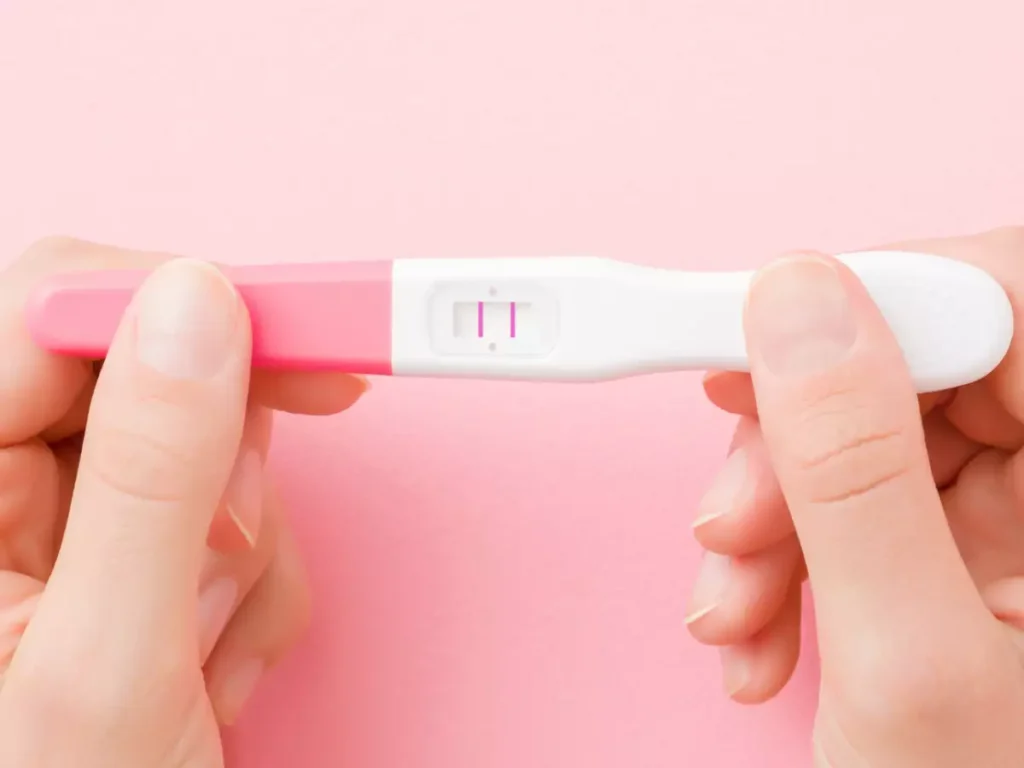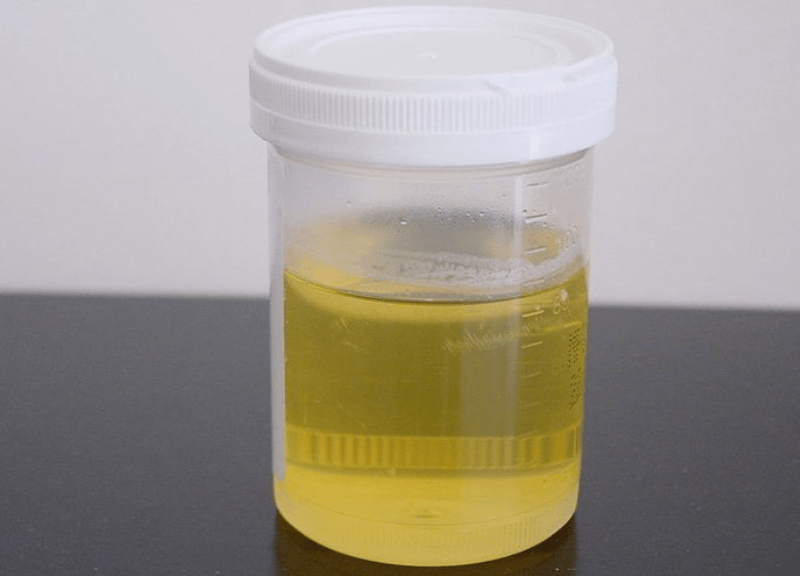Get pregnant without drugs, surgery, gimmicks, or side effects.
Have you ever wondered how to get pregnant naturally without drugs or surgery? Then you want to watch the video below to discover how to cure infertility naturally. Many couples and individuals out there today are experiencing difficulty getting pregnant.
Here are some steps to increase your chances of getting pregnant before consulting a fertility specialist.
Reports from the American Society for Reproductive Medicine. The chances of becoming pregnant within the first three months of marriage range from 20% to 37%. Those first few months are when a fertile couple is trying to get pregnant, so their chances of success increase as the months of trying to add up.
As reported by ASRM, couples not experiencing infertility have an 80% chance of conceiving after one year of trying and a 90% chance after two years of trying. There are a few ways you can maximize your pregnancy chances, from how to have sex to lifestyle habits.
Since fertility issues affect men and women almost the same way, both partners should follow the advice below.
Get pregnancy naturally at a glance.
- A natural pregnancy occurs when a man’s sperm ejaculates into the vagina. It then travels to the egg and fertilizes it to create an embryo that implants in the womb.
- Couples trying to conceive naturally can increase their chances by monitoring their ovulation and timing their sexual activity to coincide with the presence of an egg.
- The sexual position does not affect fertility rates. However, couples should avoid specific lubricants that can harm sperm health.
- Men and women can improve their chances of getting pregnant naturally by making lifestyle changes such as maintaining a healthy weight and avoiding habits that harm fertility.
15 natural ways to boost fertility.
Fertility issues affect up to 15% of couples. The road to parenthood can be difficult sometimes but know that you are not alone. Natural methods of increasing your fertility are available. Dietary and lifestyle changes can help increase fertility.
Get pregnant naturally by following these 15 ways.
1. Consumption of antioxidant-rich foods.
Vitamins like folate and zinc may help both men and women. They deactivate free radicals in your body, which can harm both sperm and egg cells. A 2012 study of young men found vitamin-rich walnuts to boost sperm quality by 75 grams per day.
Based on a study of 232 women, higher folate intake is associated with higher implantation rates, clinical pregnancy, and live births. Antioxidants may affect fertility, although it still determines how much they will or won’t work.
Vitamins C and E, folate, and beta-carotene act as antioxidants. Lutein is abundant in fruits, vegetables, nuts, and grains. Consumption of these beneficial foods shouldn’t affect your efforts.
2. Have a more extensive breakfast.
Intense breakfasts may help women with fertility problems. According to a study, eating a more extensive breakfast can decrease polycystic ovary syndrome (PCOS). A significant cause of infertility.
Eating most of one’s calories at breakfast reduced insulin levels by 8%. and testosterone levels by 50% in moderate-weight women with PCOS. High levels of either can cause infertility.
Additionally, these women ovulated more than women who ate a smaller breakfast and a more extensive dinner after the 12-week study, suggesting a higher fertility rate.
Furthermore, by the end of the 12-week study, women ovulated more frequently than women who ate a smaller breakfast. Also, a more extensive dinner indicates improved fertility.

3. Limit your intake of trans fats.
Healthy fats are essential for fertility and overall health, even though trans fats have increased the risk of infertility. It is due to their adverse effects on insulin sensitivity.
Trans fats are common in hydrogenated vegetable oils. You can find it in margarine, fried foods, processed foods, and baked goods. We all have our favorites—a diet high in trans fats and lower in fats linked to infertility for women and men.
4. If you have PCOS, limit your carbohydrate intake.
Women with PCOS should follow a lower-carb eating plan. “Carbohydrates account for less than 45 percent of every 100 calories.” Several studies have found that controlling carbohydrate intake improves some aspects of PCOS.
Low-carb diets may help keep you at a healthy weight and reduce insulin levels to promote fat loss, all while assisting menstrual regularity.
Here’s a guide to healthily eating fewer carbs.
5. Limit your intake of refined carbohydrates.
Speaking of carbs, it’s not just the quantity but also the type. Refined carbohydrates may be particularly problematic. Sugary foods, drinks, and processed grains such as white pasta, bread, and rice are examples of refined carbohydrates.
These carbohydrates are rapidly absorbed, resulting in blood sugar and insulin spikes. Refined carbohydrates have a high glycemic index (GI). The GI tells you if carbohydrate-rich food will significantly raise your blood sugar.
Insulin is chemically like ovarian hormones. These hormones help our eggs mature. Consistently elevated insulin levels can cause the body to produce fewer reproductive hormones.
Because it believes it does not need them. It can lead to a lack of egg maturation and ovulation. PCOS can worsen when high insulin levels accompany refined carbs.
6. Consume more fiber.

Having fiber helps with the elimination of excess hormones and maintaining blood sugar balance. Certain fibers can aid in removing excess estrogen by binding to it in the intestines. The body then excretes extra estrogen as waste.
A 2009 study shows a soluble fiber lowers estrogen and progesterone levels in avocados, sweet potatoes, oats, and fruits. Fruit soluble fiber had the strongest association with lower estrogen concentrations.
Some high-fiber foods are whole grains, fruits, vegetables, and beans. Fiber intake is 25 grams daily for women and 31 grams for men. According to a 2009 study, a percentage of women over 32 who eat 10 grams more cereal fiber daily have a 44.5% lower risk of infertility.
The evidence on fiber, on the other hand, is still mixed. According to another study of 250 women aged 18 to 44, increasing fiber by 5 grams daily decreases hormone concentrations and increases the likelihood of adolescence (when no ovulation occurs).
Check your current fiber intake with your doctor to see if you should eat more.
7. Substitute protein sources.
Some animal proteins (such as meat, fish, and eggs) have been linked to lower risks of infertility when replaced with vegetable proteins (like beans, nuts, and seeds). According to a study, replacing 25% of total calories with vegetable proteins reduces the risk of ovulatory infertility by 50%.
The study concluded that eating more fish increases the likelihood of live birth after infertility treatment. You can replace some of your protein sources with vegetables, beans, lentils, nuts, and low-mercury fish.
8. Select high-fat dairy products.
Low-fat dairy consumption has the potential to increase infertility. In contrast, high-fat dairy consumption has the potential to reduce it. One large 2007 study investigated the effects of eating high-fat dairy more than once a day or less than once a week.
The risk of infertility was 27% lower in women who consumed one or more servings of high-fat dairy products daily. Replace one low-fat dairy serving per day with one high-fat dairy serving.
Such as a glass of whole milk or full-fat yogurt, to reap these potential benefits.
9. Consume a multivitamin.
Multivitamins may reduce your chances of ovulatory infertility. Taking three or more vitamins per week can prevent up to 20% of infertility. Vitamins contain micronutrients that are essential for fertility.
For women conceiving, a multivitamin rich in folate may be particularly beneficial. Please consult your doctor about supplements, such as multivitamins, that may assist you in getting closer to pregnancy.
10. Participate
Exercise has many health benefits, including increased fertility. Men and women who are obese are both affected by increased moderate physical activity. Men and women who are obese are both affected by increased moderate physical activity.
The secret is to use moderation. Some women’s fertility has declined in response to excessive high-intensity exercise. If your doctor is in favor, add these yoga poses to your routine.
11. Take some time to unwind.
Stress is on the menu if you’re trying to conceive. Your chances of getting pregnant decrease as your stress levels rise. It is most likely due to hormonal changes caused by stress.
There is conflicting evidence about stress and fertility, but there is evidence that stress may suppress fertility. Assistance and counseling can reduce anxiety and depression, and it may increase your chance of becoming pregnant. Also, make time for yourself.
12. Reduce your caffeine consumption.
The link between caffeine and fertility is not conclusive. A 1997 study showed that women who consumed more than 500 milligrams of caffeine daily took up to 9 1/2 months longer to become pregnant.
Another study found no link between caffeine consumption and increased infertility. Limit your caffeine intake to one or two cups of coffee daily to be safe. Try these alternatives to coffee.
13. Make an effort to maintain a healthy weight.
Regarding fertility, weight is one of the most influential factors for both men and women. Being underweight or overweight is linked to increased infertility. The amount of fat stored in your body affects menstrual function.
Obesity is mainly related to fertility, irregular menstruation, and impaired egg development.
You should work with your healthcare provider to lose weight if you are overweight and gain weight if you are underweight to increase your chances of getting pregnant. They can assist you in doing so healthily and sustainably.
14. Examine your iron levels.
It’s time to start pumping iron. That is the supplement variety. Iron supplements and nonfertile iron from plant-based foods may reduce the risk of pregnancy loss.
According to a recent study in 2019, iron (from animal sources) did not affect fertility, and non-iron had a negligible effect on women with iron deficiency.
More research is needed to determine whether iron supplements should be recommended to women, mainly if their iron levels are already adequate.
But checking your iron levels with your doctor is an excellent first step. Iron sources containing other metals are more difficult to absorb. You can add them to food or drinks rich in vitamin C to increase absorption.
15. Limit your alcohol consumption.
Alcohol consumption can harm fertility. But it is unknown how much alcohol is required to produce this effect. According to a 2016 study, having more than 14 alcoholic drinks per week was associated with a longer time to conception.
A survey of 7,393 women from 2004 found that excessive alcohol consumption was associated with more infertility exams.
However, moderate alcohol consumption has mixed results. Other studies have found that moderate consumption can negatively affect fertility. In contrast, one older study found no link between average consumption and infertility.
Finally, excessive alcohol consumption is discouraged. Consult your doctor about your intake to ensure the best possible outcome.
Conclusion
You must consume nutritious food to promote a healthy body and reproductive system and help you become pregnant. You can improve fertility and prepare your body for pregnancy by eating a healthy diet and wholesome foods. It’s also beneficial to you in general.
You must make healthy eating and lifestyle choices immediately if you plan to conceive. Don’t let stress and worry take over. Contact your healthcare team to discuss the best options for you.



